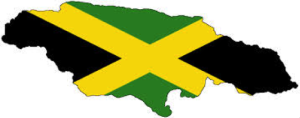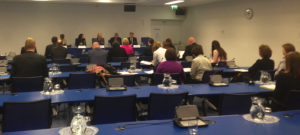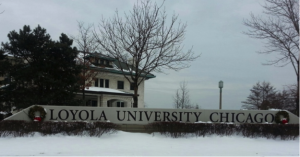 By: Gunnar Simonsen
By: Gunnar Simonsen
When my daughter was little she received $30 for her birthday that she could spend on whatever she wanted. Of course, we thought she would want to spend it on a stuffed animal or toy.
But we were wrong. Very wrong.
When her mom asked her what she wanted to spend it on, she asked for the catalog we received from a non-profit humanitarian organization. It was the kind where you could purchase things like goats, chickens, food, and clothing for people in need throughout the world.
We figured she would want to buy some chickens for a family or clothing for a child, tangible items she was familiar with. But as she looked through the catalog, she kept turning the pages until she found what she was looking for.
What she did next, we’ll never forget.
She found the page she was looking for. She decided to spend her $30 to help girls and boys who had been rescued from sex trafficking.
She was 6 years old.
When asked why she chose to spend her money that way, she responded with “as an only child, these are the brothers and sisters I never had. I need to take care of them.”
In that moment I learned that too often the difference between adults and children was simply that children still believe they can change the world.
She went on to raise several thousand dollars to help more children.
Through the eyes of my 6-year-old daughter, this was my introduction to sex trafficking. I would also learn soon after that sex trafficking wasn’t just something that only happened in other countries, it was also happening in my own backyard.
I met up with a friend of mine shortly after my daughter donated her birthday money to aid victims of trafficking. He was blown away by her heart to help others. He then paused, looked me straight in the eye, and said four words…
Don’t let her down.”
It was like a thousand arrows had simultaneously hit their mark. Those four words still pierce my heart to this day.
It has been ten years since my daughter introduced me to sex trafficking. Ten years since she introduced me to brothers and sisters I, too, never had. Ten years since she opened my eyes to this scourge on humanity.
For me, “don’t let her down” meant that with sex trafficking happening in my own backyard, there was work to do.
Since then, I found myself actively engaged in the fight to eradicate sex trafficking. From the incredible inspiration of many new friends (the brothers and sisters I never had) who have survived being sex trafficked to organizations like Shared Hope International and their work to prevent, restore, and bring justice in this fight, my heart’s cry is that maybe, just maybe, my actions have begun to live up to the impact of those first $30.
For certain, there is much work left to be done and sadly too many who need yet to be freed. And so, because a 6 year old paid it forward with everything she had, how could I not go forth and do the same?
On this Father’s Day, I will look back with thankfulness on these past ten years since my eyes were opened. Certainly what I saw was anything but something to be thankful for. However, because of my daughter, I not only saw the effects of sex trafficking, I was now responsible to do my part in ending the cause of sex trafficking, too. In this, I simply could not let her, and the many brothers and sisters that she and I never had, down.
So it is because of her actions that on this Father’s Day, I truly do reflect back on the past ten years with thankfulness. Thankfulness to a daughter that helped me return to that belief I once had as a child, in that perhaps I too can help change the world.
What about you?
 As a native of Jamaica, my anticipations of returning home are always filled with excitement and joy. I think of visiting family members, activities and events and the food. While this trip is filled with excitement and joy it is also filled with a bit of nervousness and fear. For the very first time, I will witness the effects of human trafficking on my island home of Jamaica.
As a native of Jamaica, my anticipations of returning home are always filled with excitement and joy. I think of visiting family members, activities and events and the food. While this trip is filled with excitement and joy it is also filled with a bit of nervousness and fear. For the very first time, I will witness the effects of human trafficking on my island home of Jamaica. I am very honored to join Shared Hope in Jamaica as we conduct a site visit to our Jamaician partners. I will be blogging while I am there so check back as I take this journey of an abnormal return home. Who knows, you just maybe offered a plate of ackee and saltfish (the national dish) and some festival similar to the picture on your right.
I am very honored to join Shared Hope in Jamaica as we conduct a site visit to our Jamaician partners. I will be blogging while I am there so check back as I take this journey of an abnormal return home. Who knows, you just maybe offered a plate of ackee and saltfish (the national dish) and some festival similar to the picture on your right. In attendance to speak as members of the discussion panel were Tejal Jesrani of the UNODC, Bjorn-Erik Ludvigsen of NCIS Norway, Andrew Oosterbaan of the USDOJ Child Exploitation and Obscenity Section, and Ethel Quayle of the University of Edinburgh.
In attendance to speak as members of the discussion panel were Tejal Jesrani of the UNODC, Bjorn-Erik Ludvigsen of NCIS Norway, Andrew Oosterbaan of the USDOJ Child Exploitation and Obscenity Section, and Ethel Quayle of the University of Edinburgh.








